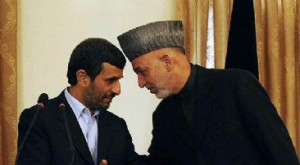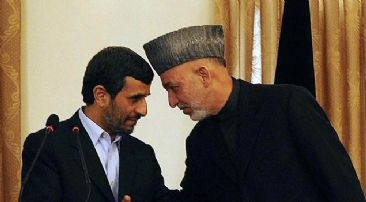 JTW Interview with Assoc. Prof. Sel�uk �olako?lu, Director of USAK Center for Asia-Pacific Studies
JTW Interview with Assoc. Prof. Sel�uk �olako?lu, Director of USAK Center for Asia-Pacific StudiesYou recently attended a conference by the Delhi Police Group titled �Afghanistan: Good Neighbourly Relations�. Could you spell out some of the takeaways from the two-day meet?
Conferences organised by the Delhi Policy Group are essentially �Track II� meetings that bring together diplomats, think tanks, experts, journalists and other stakeholders to discuss various aspects of inter-state co-operation.
The last conference was part of a larger initiative by the Delhi Policy Group to push for stability and increased prosperity in Afghanistan. This is the third conference of its kind; the first two were held in Delhi (and Jaipur) and Herat in Afghanistan. The latest conference saw participation from policy makers and experts from Afghanistan�s neighbouring states- India, Pakistan, Iran, Tajikistan, Uzbekistan, Russia and Turkey.
The discussions were centred on the need for stability in Afghanistan and the roadmap for the country after the pullback of NATO troops in 2014. A stable, de-radicalised Afghanistan is of utmost importance to all neighbouring countries. And hence, the larger neighbourhood surrounding Afghanistan needs to contribute in economic, political and military terms.
In line with this theme, the DPG meeting brought together stakeholders to discuss regional co-operation in various fields. One of possibilities discussed was that of cultural co-operation. The conference took stock of the progress made on the �doables� proposed in the previous conferences at Herat and Jaipur. The participants discussed ways to revive traditional trade routes with cultural initiatives (such as the organization of �Bedil� festival) and joint research and development between think tanks in the region. A common cultural textbook and an integrated media network have also been envisaged.
The first goal of the conference was to pave way for dialogues and to facilitate regular contacts between countries core to the Afghanistan issue- US, Pakistan, Iran, India and Afghanistan itself. Secondly, the conference aimed to achieve a consensus on what can be done for the future of Afghanistan and how to strengthen regional co-operation in the neighbourhood.
Being neighbours who share an extensive border, Afghanistan and Pakistan are key contributors to the process of peace and security in the region. However, historically there has existed a deficit of trust between Islamabad and Kabul...
Yes, the lack of closeness and the resultant trust deficit continue to be a major bottleneck in the framework of relations between Afghanistan and Pakistan. The resultant conflict continues to be the core issue on both sides of the border. Countries in the region must do their bit in helping to consolidate relations between Afghanistan and Pakistan. Any confrontation between the two will have negative implications on the whole region. Pakistan and Afghanistan have had a history of unresolved conflict. At the moment, the core bone of contention is the support that the Taliban is getting from Pakistani soil, against the Afghani establishment. On the other hand, Pakistan too is a victim of terrorist attacks where an increasing number of anti-state attacks have taken place in recent years. The history of unresolved clashes, the long and conflict ridden-borders and the threat of cross-border terrorism make Pakistan-Afghanistan relations extremely volatile. There is no single solution to this problem. The international community should be involved in solving this issue on a multilateral basis so that so that a solution acceptable to both countries could be determined. Building a resilient Afghanistan is not an easy task given that the country has been embroiled in war and civil conflict for the last few decades. Some experts think that a 20-year timeframe is reasonable to bring the country back on track. Turkey could play a decisive role on this front given the healthy relations that it enjoys with Afghanistan and its neighbourhood.
There is also an economic rationale for having peaceful relations between Afghanistan and Pakistan. Several oil and gas related pipeline projects, that could connect the mineral rich Central Asia with South Asia, are stuck for the want of a compromise between Afghanistan and Pakistan. Even India is keen to use Iran, Afghanistan and Pakistan as potential gateways to tap into Central Asia.
What role can Iran and India play in the rehabilitation of Afghanistan?
Iran�s role is an interesting one. In late-2012, Afghani officials managed to initiate contacts between their counterparts in the US and Iran. Extensive trilateral negotiations between Washington DC, Tehran and Kabul is something to look forward to in 2013. The beginning of talks suggests that there is genuine will on all sides to ensure stability in the region.
At the moment, the talks between the US and Iran focus only on Afghanistan. Iran has declared that it can separate the subject of Afghanistan from the other issues it has with the US. A stable Afghanistan is very important for Iran especially post 2014. Iran�s horror is that of the Taliban re-gaining lost ground in Afghanistan after NATO forces leave. There is a cultural connect between Iran and Afghanistan as the Persian language is spoken in both countries. A truce with the US would enable Iran to exert much more influence over Afghanistan, both economically and politically.
Security may be the primary need for the Afghani society, but there are other pressing requirements of infrastructure, education and overall social development. India is very eager to contribute to the Afghani economy. Indian companies have been actively involved in building highways and infrastructure networks in the country. Historically, Kabul and New Delhi have shared warm vibes, stemming from their common friendship with the Soviet Union during the cold war days.
Why is the US interested in engaging Iran on the Afghanistan issue?
The US is keen to have stronger co-ordination with Afghanistan�s neighbours so that the Taliban does not emerge from the sidelines again. The Taliban still enjoys some support in the Eastern and South Eastern pockets of Afghanistan.
Unfortunately, some countries are also trying to position Iran as a balancer to Pakistan in the region. While Iran�s role in the region is significant, Pakistan�s importance is paramount. The �Pashtuns� live in both Pakistan and Afghanistan. Both countries share long, porous borders, inflicted by problems of lawlessness. And so all parties should avoid confrontation and counter-balancing policies and try to engage all stakeholders for co-operation and stability in the region.
Will Afghanistan be resilient to internal challenges posed by a resurgent Taliban after the NATO pullback? What was the broad consensus among participants in the DPG Conference on this subject?
The question is a very pertinent one and it was repeatedly discussed in both Herat and New Delhi. I believe that the Afghanistan government and the Afghani national institutions (law and order) are much more capable in comparison to their predecessors. All major stakeholders agree that moderate sections within the Taliban should be engaged in discussions for a stronger Afghanistan. Neighbouring countries will also have a role to play on this front.
By The Journal of Turkish Weekly
The Iran Project is not responsible for the content of quoted articles.











